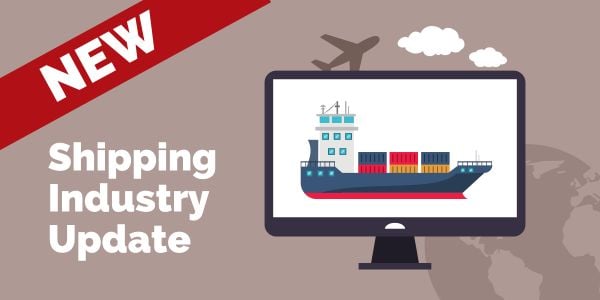
This monthly update, provided by the British Association of Removers gives a current overview of the global shipping market out of the UK. It provides HR and Global Mobility Managers with a useful and unbiased understanding of the potential challenges, cost implications and risks that may need to be planned for.
**Please note this information applies to all UK international removers and is not unique to Bournes.**
Key UPdates:
Suez Canal Diversion
- The diversion around the Cape of Good Hope due to conflict in the Red Sea region is now well established with schedules usually followed.
- Longer transit times and operational surcharges on these routes are now the norm. There is no estimate when passage through the Suez Canal will be safe again.
- Increasing freight costs for export shipments out of Asia may start to impact other routes as capacity reallocation sees restricted space for exports from Europe, particularly to North and South America.
- The situation remains very fluid with shipping lines having to quickly react to unexpected developments.
Panama Canal Drought
- The issues caused by the drought that saw delays for shipments transiting the Panama Canal have improved with delays to the US West Coast shortening.
Container Imbalances
- The lack of import shipments arriving at UK and European ports is still causing additional challenges for shipping lines, with a shortage of empty sea containers available for export. In some cases, this is causing last-minute changes to schedules as bookings are rolled to a later vessel by the shipping line, which unfortunately is totally outside of the mover's control.
- Container Imbalances can also occasionally impact the quality of the container supplied by the shipping line. If a container provided is unfit for purpose the mover will be forced to reject it to protect the shipment. Awaiting a replacement container can cause delays to the load date.
Freight Rates
- Rates on some traffic lanes have fallen so far that shipping lines countermeasures (such as slow steaming/reducing vessels) are encouraging freight rates on those lanes to rise.
- Members of the BAR Overseas Moving group benefit from negotiated annual freight contracts to smooth the impact and provide a degree of stability.
- The BAR expect the uncertainty to gradually settle in the coming months.
Westbound Shipments from Europe
(to USA, Canada, Caribbean and Latin America)
- High demand for space during the peak season summer months may cause a shortage of empty containers. Destination ports in the Pacific Northwest (Seattle, Portland, Vancouver) are still being served via rail from ports on the US East Coast therefore may be affected by intermittent congestion on the US rail networks.
Changes to Costs
- Exchange rate fluctuations and shipping line fuel (bunkering) cost reviews can impact the final sea container freight cost. In some recent bunkering examples some movers have seen increases up to US$350.
Lithium-Ion Batteries
- Shipping lines have still yet to issue consistent rules regarding the inclusion or exclusion of Li-ION batteries which have been widely reported to increase risk of fire (examples include e-bikes/scooters, cordless power tools, laptops etc).
- The BAR Overseas group recommends that Li-ION batteries are NOT SHIPPED and are instead removed and replaced at destination. If they are included typically the shipment will need to be declared as Hazardous cargo which will require additional documentation processes and substantial freight surcharges, if permission is granted.
- Failure to declare batteries whether intentionally or in error is a serious offence under maritime law and could lead to substantial fines for the customer (approx US$30,000) and risk of confiscation/disposal of consignment.
KEY ACTIONS to MiNIMISE RISK
The combined impact of the above challenges on relocating employees can be summarised as follows:
- Longer lead times and increased notice required to secure vessel space.
- Increased likelihood of delays due to containers being rolled or rejected.
- Freight rate volatility still exists but expected to settle in coming months.
Recommended Actions for Global Mobility:
- Plan in advance wherever possible, communicating moving dates early to allow sufficient time for booking vessels.
- Communicate closely with your shipping vendors to stay updated on changes in schedules, routes and capacity for your key lanes.
- Ensure transparency by making sure you or your mover are discussing potential delays with relocating employees to manage expectations.
- Consider updating your policy to address the challenges with Li-ION batteries to prevent complications and additional costs (or at least ensure your mover is communicating this clearly with employees). Discuss with your mover how to handle any exceptions, such as batteries which cannot be removed.
These actions can help minimise risk of additional costs or a poor service experience for your employees.
If you require any further detail or have questions please don't hesitate to contact our Corporate Relocation Team.









